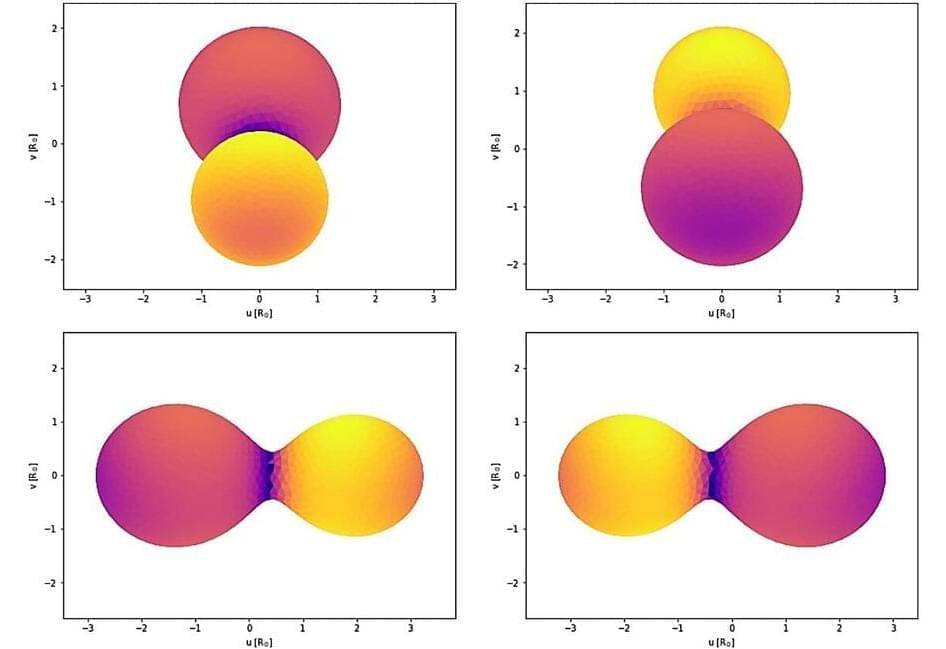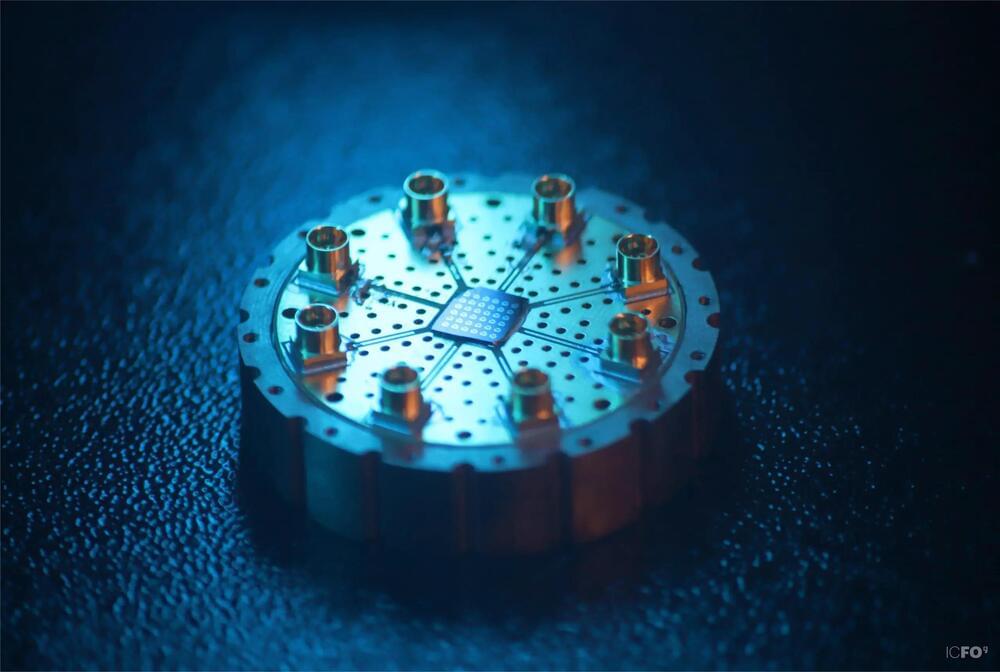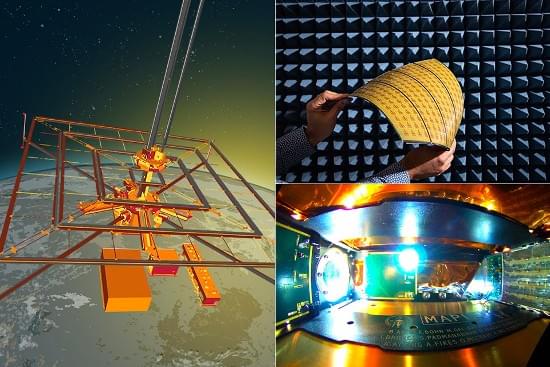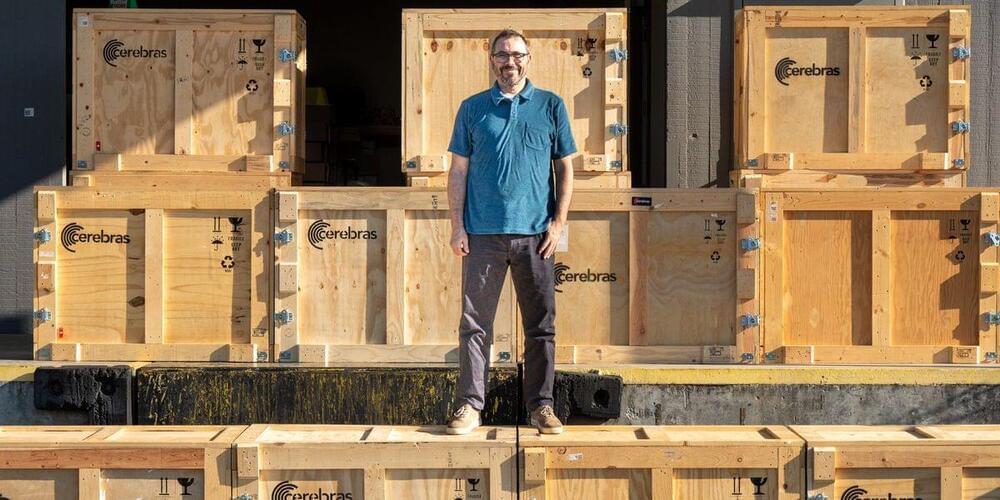Aug 9, 2023
Research investigates eclipsing binary CSS J003106.8+313347
Posted by Dan Breeden in categories: materials, space
Using a private observatory, astronomers have performed the first photometric study of a peculiar W UMa-type binary known as CSS J003106.8+313347. Results of the study, published July 27 on the preprint server arXiv, shed more light on the properties of this system.
In general, W Ursae Majoris-type, or W UMa-type binaries (EWs) are eclipsing binaries with a short orbital period (below one day) and continuous light variation during a cycle. They are composed of two dwarf stars with similar temperature and luminosity, sharing a common envelope of material and are thus in contact with one another. Therefore, they are often dubbed “contact binaries.”
Located some 4,900 light years away, CSS J003106.8+313347 is an EW with an apparent magnitude of 14.73. The orbital period of the system is estimated to be approximately 0.344 days.








 Age is a risk factor for hematologic malignancies. Attributes of the aging hematopoietic system include increased myelopoiesis, impaired adaptive immunity, and a functional decline of the hematopoietic stem cells (HSCs) that maintain hematopoiesis. Changes in the composition of diverse HSC subsets have been suggested to be responsible for age-related alterations, however, the underlying regulatory mechanisms are incompletely understood in the context of HSC heterogeneity. In this study, we investigated how distinct HSC subsets, separated by CD49b, functionally and molecularly change their behavior with age. We demonstrate that blood lineage differentiation progressively shifts to a higher myeloid cellular output in both lymphoid-biased and myeloid-biased HSC subsets during aging. In parallel, we show that HSCs selectively undergo age-dependent gene expression and gene regulatory molecular changes in a progressive manner, which is initiated already in the pre-adult stage. Overall, our studies suggest that aging intrinsically alters both cellular and molecular properties of HSCs.
Age is a risk factor for hematologic malignancies. Attributes of the aging hematopoietic system include increased myelopoiesis, impaired adaptive immunity, and a functional decline of the hematopoietic stem cells (HSCs) that maintain hematopoiesis. Changes in the composition of diverse HSC subsets have been suggested to be responsible for age-related alterations, however, the underlying regulatory mechanisms are incompletely understood in the context of HSC heterogeneity. In this study, we investigated how distinct HSC subsets, separated by CD49b, functionally and molecularly change their behavior with age. We demonstrate that blood lineage differentiation progressively shifts to a higher myeloid cellular output in both lymphoid-biased and myeloid-biased HSC subsets during aging. In parallel, we show that HSCs selectively undergo age-dependent gene expression and gene regulatory molecular changes in a progressive manner, which is initiated already in the pre-adult stage. Overall, our studies suggest that aging intrinsically alters both cellular and molecular properties of HSCs.







